A British sitcom or a Britcom is a situation dark comedy programme produced for British television. Although styles of sitcom have changed over the years they tend to be based on a family, workplace or other institution, where the same group of contrasting characters is brought together in each episode. British sitcoms are typically produced in one or more series of six episodes. Most such series are conceived and developed by one or two writers.
Nineteen Eighty-Four is a British television adaptation of the 1949 novel of the same name by George Orwell, originally broadcast on BBC Television in December 1954. The production proved to be hugely controversial, with questions asked in Parliament and many viewer complaints over its supposed subversive nature and horrific content. In a 2000 poll of industry experts conducted by the British Film Institute to determine the 100 Greatest British Television Programmes of the 20th century, Nineteen Eighty-Four was ranked in seventy-third position.
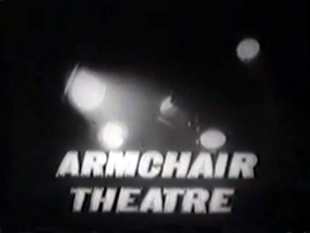
Armchair Theatre is a British television drama anthology series of single plays that ran on the ITV network from 1956 to 1974. It was originally produced by Associated British Corporation. Its franchise successor Thames Television took over from mid-1968.

George Sewell was an English actor, best known for his television roles, but also active on stage and in films.

Kenneth Colley is an English film and television actor whose career spans 50 years. He came to wider prominence through his role as Admiral Piett in the Star Wars films The Empire Strikes Back and Return of the Jedi.
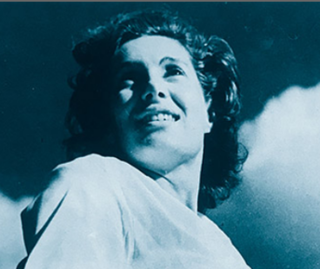
Jill Craigie was one of Britain's earliest women's documentary makers. Her early films are notable because of their socialist and feminist politics, but her career as a film-maker has been "somewhat eclipsed" by her marriage to the Labour Party politician Michael Foot (1913–2010), whom she met during the making of her 1946 film The Way We Live. She was a British documentary filmmaker, screenwriter and feminist.
Frank Launder was a British writer, film director and producer, who made more than 40 films, many of them in collaboration with Sidney Gilliat.

No Hiding Place is a British television series that was produced at Wembley Studios by Associated-Rediffusion for the ITV network between 16 September 1959 and 22 June 1967.

John Paddy Carstairs was a prolific British film director (1933–62) and television director (1962–64), usually of light-hearted subject matter. He was also a comic novelist and painter.
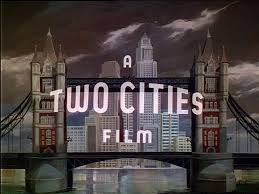
Two Cities Films was a British film production company. Formed in 1937, it was originally envisaged as a production company operating in the two cities of London and Rome which gave the company its name.

David John Battley was a British actor of stage and screen, mainly appearing in comedy roles.
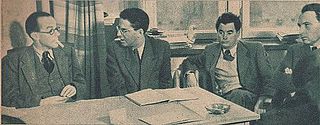
Basil Wright was a documentary filmmaker, film historian, film critic and teacher.

The Kiss in the Tunnel, also known as A Kiss in the Tunnel, is a 1899 film British short silent comedy film, produced and directed by George Albert Smith, showing a couple sharing a brief kiss as their train passes through a tunnel, which is said to mark the beginnings of narrative editing. The film is the first to feature Laura Bayley, Smith's wife.

Thorold Barron Dickinson was a British film director, screenwriter, producer, and Britain's first university professor of film. In recent years Dickinson's work has received much praise, with fellow director Martin Scorsese describing him as "a uniquely intelligent, passionate artist... They're not in endless supply."

Vernon Campbell Sewell was a British film director, writer, producer and, briefly, an actor.

Lord Camber's Ladies (1932) is a British drama film directed by Benn W. Levy, produced by Alfred Hitchcock, and starring Gerald du Maurier, Gertrude Lawrence, Benita Hume, and Nigel Bruce.

Carnival is a 1921 British silent drama film directed by Harley Knoles and starring Matheson Lang, Ivor Novello and Hilda Bayley. During a production of William Shakespeare's Othello in Venice, an Italian actor suspects his wife of having an affair and plans to murder her on stage. It was based on a stage play of the year before, of which Matheson Lang was one of the writers. The film was a popular success, and was re-released the following year. In 1931, it was remade as a sound film, Carnival, directed by Herbert Wilcox.
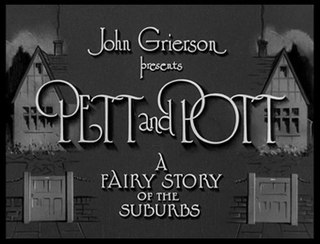
Pett and Pott is a 1934 short film produced by John Grier under the auspices of the GPO Film Unit and directed by Alberto Cavalcanti.
Donald Alexander (1913-1993) was a British documentary film-maker who worked as producer, director, writer and editor of films documenting social and industrial conditions, most notably in the coal-mining industry, between the 1930s and 1970s. The movement of which he was part is now regarded as the golden age of British documentary. Its leading figures also included Paul Rotha, John Grierson, Edgar Anstey, Humphrey Jennings, Basil Wright and Arthur Elton.
Gaston Quiribet (1888–1972) was a French film director, cinematographer, and writer. He worked for Hepworth Studios. He used stop motion techniques to achieve cinematographic tricks.















